End-of-life debate: Suicide or personal liberty?
|
Published: 02-03-2024 4:25 PM
Modified: 02-07-2024 9:43 AM |
Dennis Pratt envisions the end of his life with a joyous gathering of loved ones, filled with nostalgic reflections, shared cherished photos and accompanied by his favorite instrumental piece from the French composer Gabriel Fauré playing in the background.
The prospect of languishing in a sterile hospital bed, wrestling with each agonizing breath and enduring relentless pain is exactly what he wants to avoid.
“Why do I have to do that? I know I’m going to die,” said Pratt, 66, of Dover, who was diagnosed with terminal prostate cancer. “It’s my body. I want to have the option to decide how much I can put up with and if it does get too bad, I have an option.”
For individuals like Pratt, House Bill 1283 holds the promise of providing an option for medication-assisted dying.
Modeled after laws in 10 other states and the District of Columbia, including neighboring Maine and Vermont, New Hampshire’s bill would allow individuals over 18 years of age with terminal illnesses to choose self-administered means to end their lives.
To be eligible for these medications, individuals must receive verification from two healthcare providers.
The first prescribing provider would verify that the person meets the criteria under the End of Life Options Act. This includes ensuring the individual is mentally sound, has a prognosis to live six months or less, has voluntarily made the decision and is informed about alternatives, among other factors. The second healthcare provider must then confirm those qualifications.
Even if a patient is terminally ill and fulfills all the criteria, the eligibility for this option hinges on the ability to self-administer the medication – a provision shared with other states.
Article continues after...
Yesterday's Most Read Articles
 ‘Field of Dreams’ to ‘a dump’ – What golfers have to say about Concord’s plans to rebuild the Beaver Meadow clubhouse
‘Field of Dreams’ to ‘a dump’ – What golfers have to say about Concord’s plans to rebuild the Beaver Meadow clubhouse
 Man dies in RV fire in parking lot of Concord’s Steeplegate Mall
Man dies in RV fire in parking lot of Concord’s Steeplegate Mall
 John Swope, longtime Concord civic leader who spearheaded Capitol Center for the Arts, dies at 86
John Swope, longtime Concord civic leader who spearheaded Capitol Center for the Arts, dies at 86
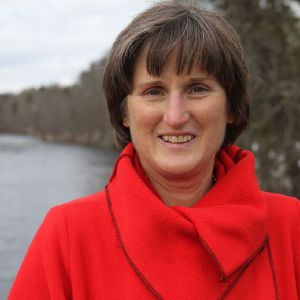 ‘New Hampshire is just going to embarrass itself’: Former Child Advocate warns against proposed office cuts
‘New Hampshire is just going to embarrass itself’: Former Child Advocate warns against proposed office cuts
 Hopkinton residents split on changes to create affordable housing
Hopkinton residents split on changes to create affordable housing
 Photos: An update on some of the Concord’s springtime building projects
Photos: An update on some of the Concord’s springtime building projects
For example, if a patient, initially quadriplegic, later develops a terminal illness, they would be excluded from medical aid in dying due to potential physical limitations in picking up medication, holding a straw for ingestion or pouring it into their feeding tube.
After the medication is prescribed, the choice to take it remains entirely in the hands of the patient. Whether it’s kept at home or in a hospice facility, patients can decide when or if they want to take it.
Between July 1, 2021, and June 30, 2023, 85 Vermonters sought and qualified to receive life-ending drugs. Of these, 86%, or 72 individuals, died by their own choice, according to the Vermont Department of Health.
Having the choice to end their life brings a sense of solace to people who know death is inevitable and could be fast approaching and unpleasant, advocates say.
“I think it just gives power back to the dying, where it’s otherwise so scary and horrifying,” said Pratt.
However, the legislation remains controversial.
Lisa Beaudoin, founder of Strategies for Disability Equity LLC, opposes the bill, asserting that medically assisted means to end life is equivalent to suicide.
“In no way am I ever going to support the state sanctioning suicide,” said Beaudoin. “I think that this is a dangerous Pandora’s box that is normalizing that, in some cases, it’s OK to commit suicide. I do not want insurance companies to have a code that is cheaper and more expedient than palliative care. I do not want the government telling people that, in some cases, it’s OK to choose to kill yourself.”
For supporters, end-of-life options are not viewed as suicide. It’s a way to end their life peacefully while having autonomy over their body.
“Suicide is when a person who is not necessarily terminally ill but who no longer wants to live. It’s often a violent act. When a person dies alone, in the case of HB 1283, the person wants to live but is terminally ill. So the situation is different,” said Nancy Dorner, a former school guidance counselor and a former clinician at the Center for Life Management. “Medically assisted dying is peaceful.”
The ongoing discussion about end-of-life options in New Hampshire is not a new movement. An early attempt was made in 2015 with a bill to establish a committee to examine the positive and negative consequences of such decisions. However, this effort was prevented from becoming law when then-Gov. Maggie Hassan vetoed the proposal.
In the next two years, similar attempts were made, this time in the state Senate. However, those attempts failed to reach the governor’s desk.
After unsuccessful attempts to form a study committee, a similar bill to the current one was introduced in 2020. However, it failed to pass and was suggested to be considered in future legislative sessions.
If this year’s bill is passed as presented, it won’t only provide an option for individuals with terminal illnesses like cancer but also for those with neurological degenerative diseases who will never recover and are in chronic pain.
Under this bill, physicians are not obligated to provide end-of-life care if they find it uncomfortable.
It is scheduled for a hearing before the House Judiciary Committee on Wednesday and has attracted a massive amount of attention.
Nearly 600 written testimonies from residents in New Hampshire, Maine, Vermont and Massachusetts were submitted by Friday. Among these, 370 voices oppose the option of choosing to end one’s life with medication, while 226 express support for this choice.
A key contention from those opposing the bill is the perceived redundancy when palliative care and hospice services are available to alleviate suffering.
In palliative care for terminal illnesses, morphine can effectively manage pain, yet it has its limitations. Pain medication, though crucial, can only address a portion of the challenges, as other symptoms present complexities in providing comprehensive relief to suffering.
“Hospice and palliative care are important to all of us in those last years, but it becomes inadequate in certain circumstances,” said Marianne Jackson, a retired obstetrician-gynecologist in Madison. “Many people focus only on pain, but when someone is either starving to death or having intractable vomiting or unable to manage their own secretions, without tubes it’s not a matter of simply anti-nausea medicine or pain medicine.”
The situation becomes vexing for physicians treating patients who desperately want to end their suffering after exhausting all possible treatment options.
“It makes you feel like your hands are tied,” said Brent Richardson, a critical care nurse from Chester. “I’ve had patients and families say we treat our pets more humanely sometimes. I understand the arguments on the other side of the coin. But it’s arbitrary and takes away individuals’ right to have options at the end of their life.”
Beaudoin, of Strategies for Disability Equity, raises another concern that physician-assisted dying could exacerbate health disparities among the disabled population.
“If we pass physician-assisted suicide bills, we are codifying ableist narratives about life with a disability and that is very dangerous, dangerous for people with disabilities because we already have difficulty accessing culturally competent care,” said Beaudoin, referring to language used to support the bill like “death with dignity” or “losing control of my body.”
This fear is true for people like Melinda Simms who have a disability.
In 2018, after surgery, Simms — who has a spinal cord injury — saw her condition worsen. She lost most of her abilities and became partially paralyzed from the neck down.
She fears that a bill like this could be dangerous for people with disabilities making them more vulnerable than they are now.
“This bill is very frightening, and I already feel discrimination when I go into the hospitals,” said Simms, of Belmont. “Our medical system is afraid of disabled people. They don’t know what to do with us. When I go to a doctor’s appointment, the offices are not set up for someone in a wheelchair.”
Simms and her husband, Rodney, oppose the bill because it “offers suicide as a solution to a problem.”
They are also concerned that if someone is paralyzed, the bill allows doctors to give the option to die by assessing a person’s quality of life when they are at their weakest.
“I know for a fact that our medical system takes a very dim light towards people who are disabled, for people they think too old to be of any use,” said Rodney.
Recounting her initial struggles with her diagnosis, she experienced severe depression. Looking back, she’s grateful she didn’t have the option of physician-assisted dying because she would have missed out on enjoying her time with her grandson and her husband.
Besides family time, she enjoys hobbies like archery.
“It would have all been robbed, and they would have been robbed with me,” said Melinda Simms. “So for me, every day is a brand new day, it’s a beautiful day, and I enjoy it.”

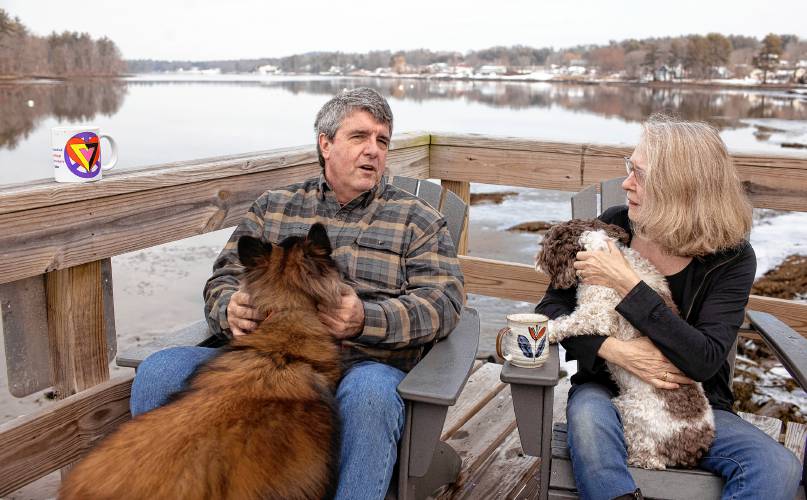
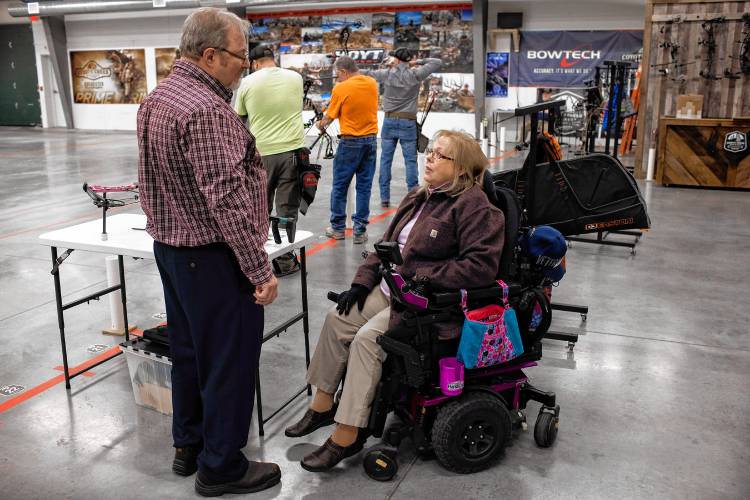

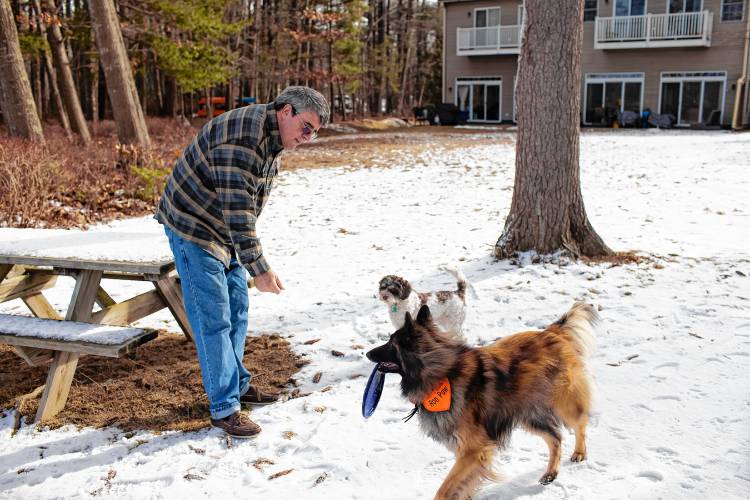
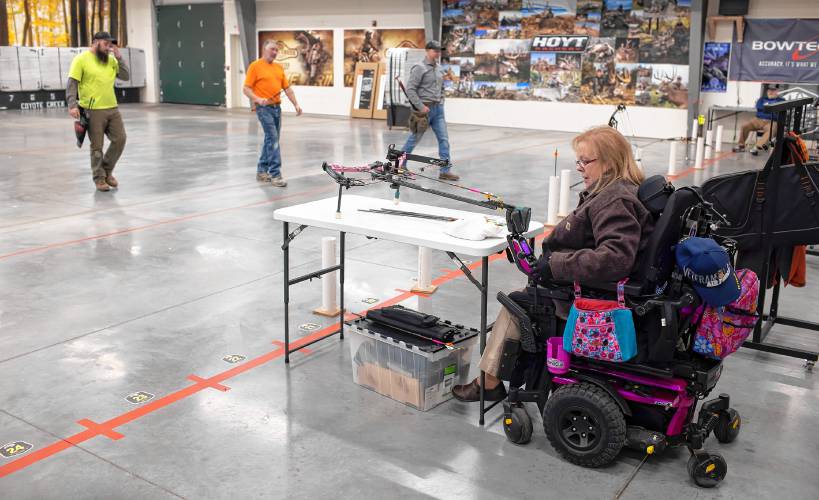
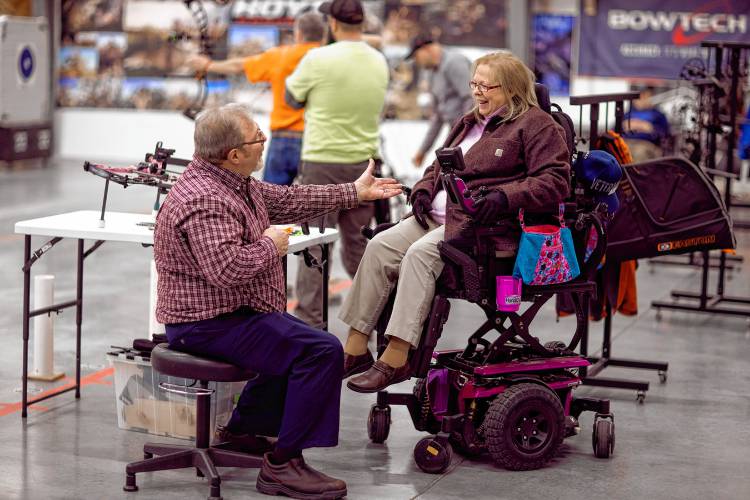
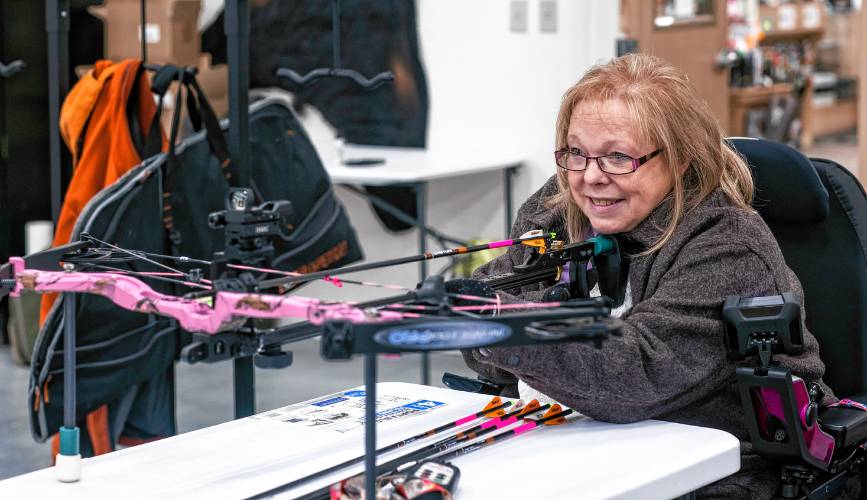
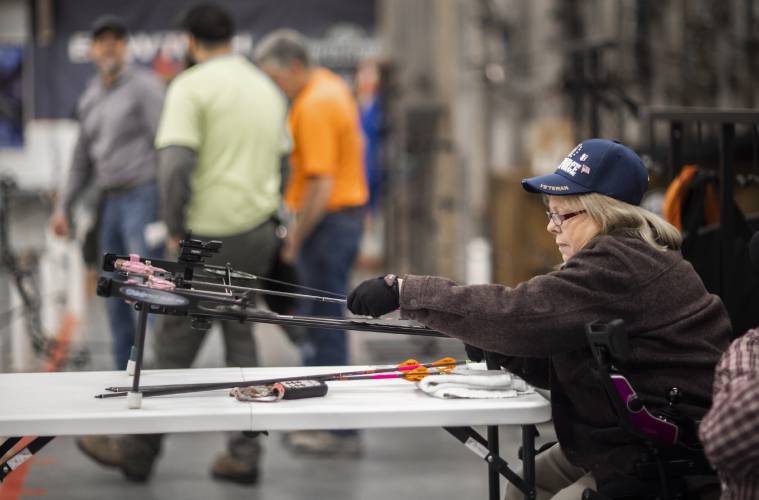
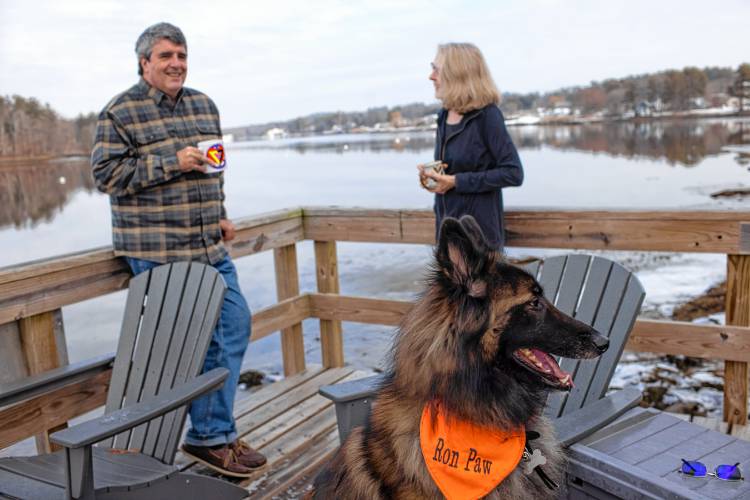
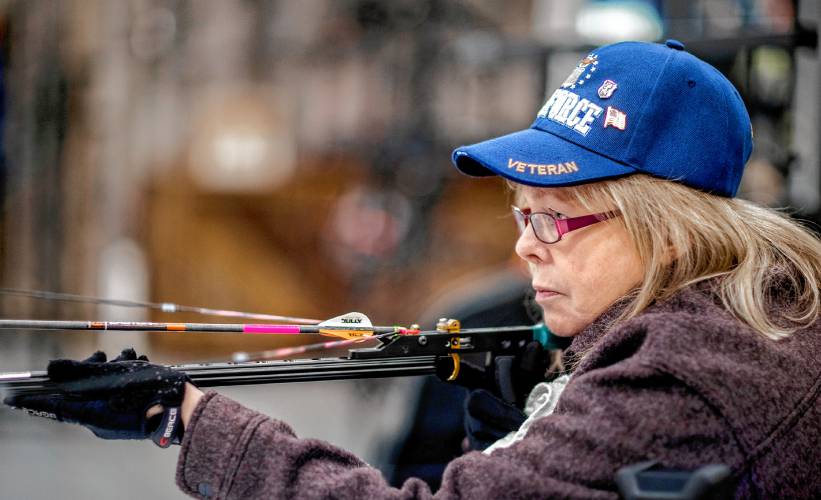
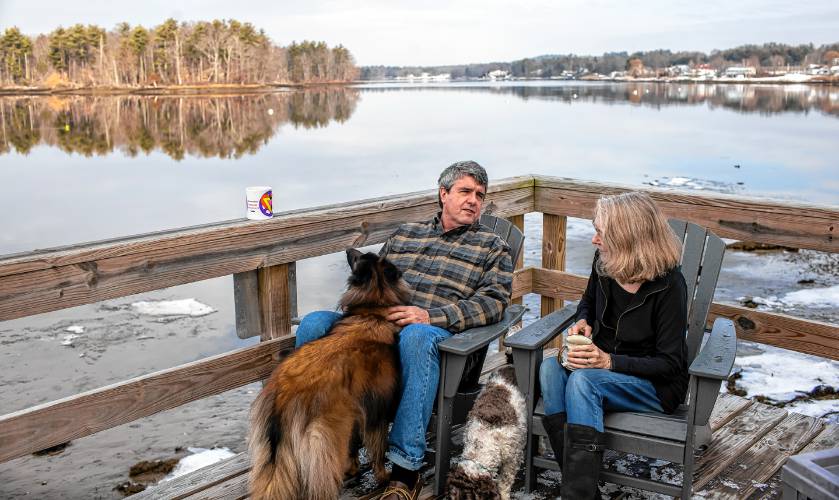
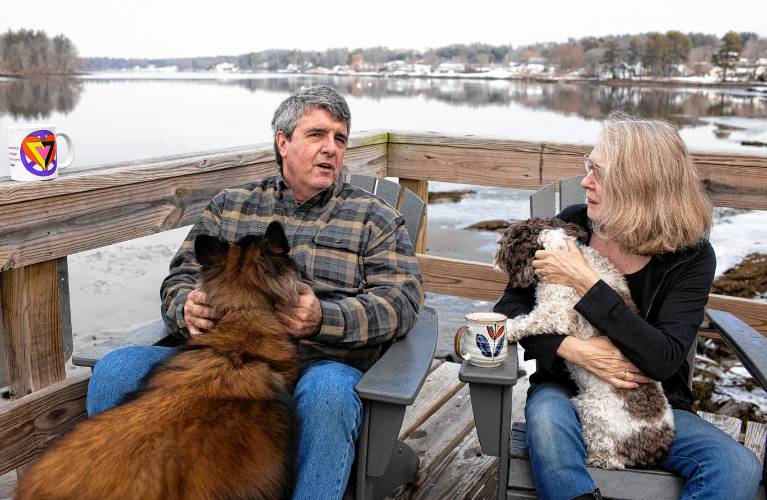






 Outside, please: Concord outdoor dining begins for the season
Outside, please: Concord outdoor dining begins for the season ‘A full board’: After frustration, Chichester appoints a third selectman
‘A full board’: After frustration, Chichester appoints a third selectman Patriot Piecemakers craft quilts to honor veterans
Patriot Piecemakers craft quilts to honor veterans
